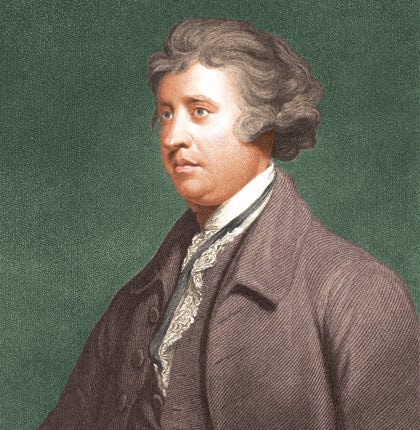To be anti-politics might be fun, but it gets Britain nowhere
Ukip’s hipper mirror-image, Russell Brand, recruits the bar-stool whinger cradling a mojito rather than a G&T for his polysyllabic playground revolution


Along with more than nine million others, this week I briefly glimpsed the British fantasy of choice for 2014. It came during Sherlock Holmes’s prime-time resurrection, when Benedict Cumberbatch, as the updated sleuth, imagined the outcome of a terrorist bomb wired into a Tube carriage under Westminster. Up went the Houses of Parliament, and down came Elizabeth Tower (aka Big Ben), in a toasty conflagration that no doubt ignited cheers across the land. This speculative shot felt like a collective wet dream – or rather hot dream. Right or left, we all love Guy Fawkes now.
On one flank, the anti-state libertarian blogger Paul Staines markets his daily diet of revelation and provocation as “Guido Fawkes”. On the other, the Anonymous and Occupy movements borrow the Fawkes mask devised by the artist David Lloyd for Alan Moore’s V for Vendetta comics to lend anonymity, and solidarity, to their anti-capitalist protests. What would Fawkes himself, who conspired in 1605 on behalf of Catholic absolutism, have made of the fact that Saudi Arabia has even banned his image as an incitement to rebellion? Lloyd, meanwhile, seems to speak for a disaffected majority when he lauds the man behind his mask as “our great historical revolutionary”.
Rudderless and inchoate, a widespread anti-political rage now drives the words and deeds of its principal targets. A poll last week showed that the political system leaves voters “angry” (47 per cent) more than “bored” (25 per cent). As for those “inspired” by Westminster, they number one voter in every 50. Who are these elusive 2 per cent of happy bunnies? Who meets them? In the wake of the prosecutions over fiddled expenses, which crystallised rather than created a sense of disgusted disconnection, words of routine contempt for MPs can now bind all strangers. We can’t agree on what we want. We can’t agree on whom to blame. But a ritual curse on parliamentary democracy and the people who sustain it will never lose you friends in Britain now.
However justified by some MPs’ crass dishonesty, this mood of knee-jerk animosity may prove deeply dangerous. Britain has a political profile that loads the reflex rejection of voting-as-normal with peculiar risks. Gun-toting, gas-guzzling backwoodsmen they may be, but Tea Party activists in the US belong to a consistent tradition of frontier self-reliance and suspicion of big – or, indeed, any – government. Here, we still crave a high level of state assistance – from a well-funded NHS to improved schools and scrounger-proof benefits – but enjoy despising the institutions that can deliver it.
A close-knit national political culture means that we have near-zero tolerance of local deviations from an assumed average. The headline “postcode lottery” instantly comes into play. Thus, attempts to fortify the clout of councils collide with an ingrained centralism, popular as well as bureaucratic. In 2013-2014, local authorities will raise only 23 per cent of their funding from council tax as opposed to 76 per cent from Whitehall grants.
So, extremely low trust in representative central government runs in tandem with notably high dependency on it. It is a combustible mix that gives populists and demagogues the optimum conditions in which to thrive. In May, Ukip – which has itself has had one former MEP jailed for expenses fraud and another two censured for misuse of EU funds – will cash in on this resentment and conceivably top the poll in the European elections. Ukip’s hipper and more hirsute mirror image, Russell Brand, recruits the bar-stool whinger cradling a mojito rather than a G&T for his polysyllabic playground revolution. Pervasive anti-politics also helps to explain why MPs and MSPs alike doubt the polling that indicates a thumping rejection of Scottish independence in September. If the secessionists do manage to tap into the anti-Westminster seam, then odds on a separation will quickly shorten.
For the more sanguine of political sages, it was ever thus. In his new book The Confidence Trap, David Runciman argues that time and again democracy has “failed” voters, forfeited their faith and spun into crisis, only to rise again – a bit like Holmes? – thanks to the noisy, messy attributes that tarnished it. For Runciman, the more it bends, or even sags, the less democracy will break. And those who govern should fear consensual applause – or the illusion of such approval – far more than the Fawkes-masked derision that serves to keep the show on the road.
Those who seek a quicker fix make the case for referendums and recall votes, for online petitions and binding plebiscites. All supposedly serve to close the gap between populace and legislators, reminding the latter that – in the title of the MP-tracking website – “They Work For You”. But who are “you”, exactly? The squeezed-middle young professional in a rack-rented flat, the chilly pensioner with a fuel-hungry house, the benefits-dependent single parent, the subsidy-supported hill farmer, the jobless factory worker. The mythical “common people” share few common fiscal interests now. More direct participation, whether cheered on by the idealised ghosts of Periclean Athens or the Paris Commune, will not by itself make for unity of purpose.
On the other hand, it would be a brave MP who now returned to Edmund Burke and told constituents that it was his or her job to lead and not to follow. For Burke, addressing the electors of Bristol in 1774, it is the representative’s duty “to sacrifice his repose, his pleasures, his satisfactions” to the voters. But “his unbiased opinion, his mature judgement, his enlightened conscience, he ought not to sacrifice to you; to any man, or to any set of men living”. Who will dare stand, in 2015, on a platform of total financial transparency and Burkean independence of mind? No party would permit it.

Most of the sounder proposals to refresh faith in democracy invoke some kind of “deliberative” process. Informed citizens should, in this model, have the opportunity to take part in every link of the decision-making chain rather than simply issue a yes/no verdict at its finale. In practice, how might this noble notion work? Well, here’s one idea that has even less chance of rapid realisation than an 11 per cent pay hike for MPs. We should fill at least some public offices by lottery.
“Sortition”, or the allocation of civic duties by lot, has a distinguished history. If ancient Athens practised it to supply most rotating city offices, then everyone in modern Britain understands it – and almost all respect it. The jury system still commands near-universal consent. People know that jury service modifies the risks of pure “sortition”. It makes provision for reasonable refusal or deferment, for challenges on the grounds of competence or conduct, and above all for guidance from a corps of impartial professionals – in this case, judges. If qualified random selection allows us to send someone down (or not) for life, then why not to decide on speed bumps and swimming pools?
Why should a proportion of time-limited seats on local authorities, on health trusts or even in Parliament not depend on drawing lots? Many of the chosen would naturally wish to dodge or to delay, and might be granted more latitude to do so than with juries. Many others, given a guarantee of fair, accountable advice, would leap at the chance and rise to the responsibility. Imagine a National Lottery show in which the double-rollover jackpot might bring a huge cheque for one lucky winner and a fixed-term place in the House of Lords for another.
At least two substantial books, by Barbara Goodwin (Justice by Lottery) and Neil Duxbury (Random Justice), have in recent years studied the ethics and practice of social lotteries. When I asked Professor Duxbury of the LSE law department about them this week, he rightly pointed out that office-by-lot could never act as a panacea for alienation: “Some citizens randomly selected … would feel empowered or privileged, some would feel resentful or coerced; some would do a good job, some wouldn’t.” Like professional politicians, maybe? “A genuine lottery,” he warns, “takes away choice from the moment one chooses that lottery to make a decision or allocate a resource: we keep our fingers crossed that it works out for the good.”
Professor Duxbury does suggest a method by which “lotteries and votes are combined”. After an electoral count, “each candidate is entered into a lottery in which their chance of winning is determined by the percentage of votes they got”. Hence “the person with the majority of the votes has the best chance, but no guarantee, of being elected”. This procedure “gives citizens who prefer minority candidates a greater incentive to vote”. Secondly, “it gives them an incentive to vote honestly … for the candidate they genuinely prefer”.
We could do with much more of such thinking outside the (ballot) box. For now, the boldest vision of a society steered entirely by random selection unfolds not in political science but in Jorge Luis Borges’s classic story “The Lottery in Babylon”. Its narrator tells us: “Like all the men of Babylon, I have been proconsul; like all, I have been a slave. I have known omnipotence, ignominy, imprisonment.” Few of us hanker to be proconsuls. None wants to be a slave, of any sort. But many more citizens could at least taste the burden, and the honour, of the legislator. That shouldn’t strike us as too weird a wheeze. You might even call it – elementary.
Join our commenting forum
Join thought-provoking conversations, follow other Independent readers and see their replies
Comments